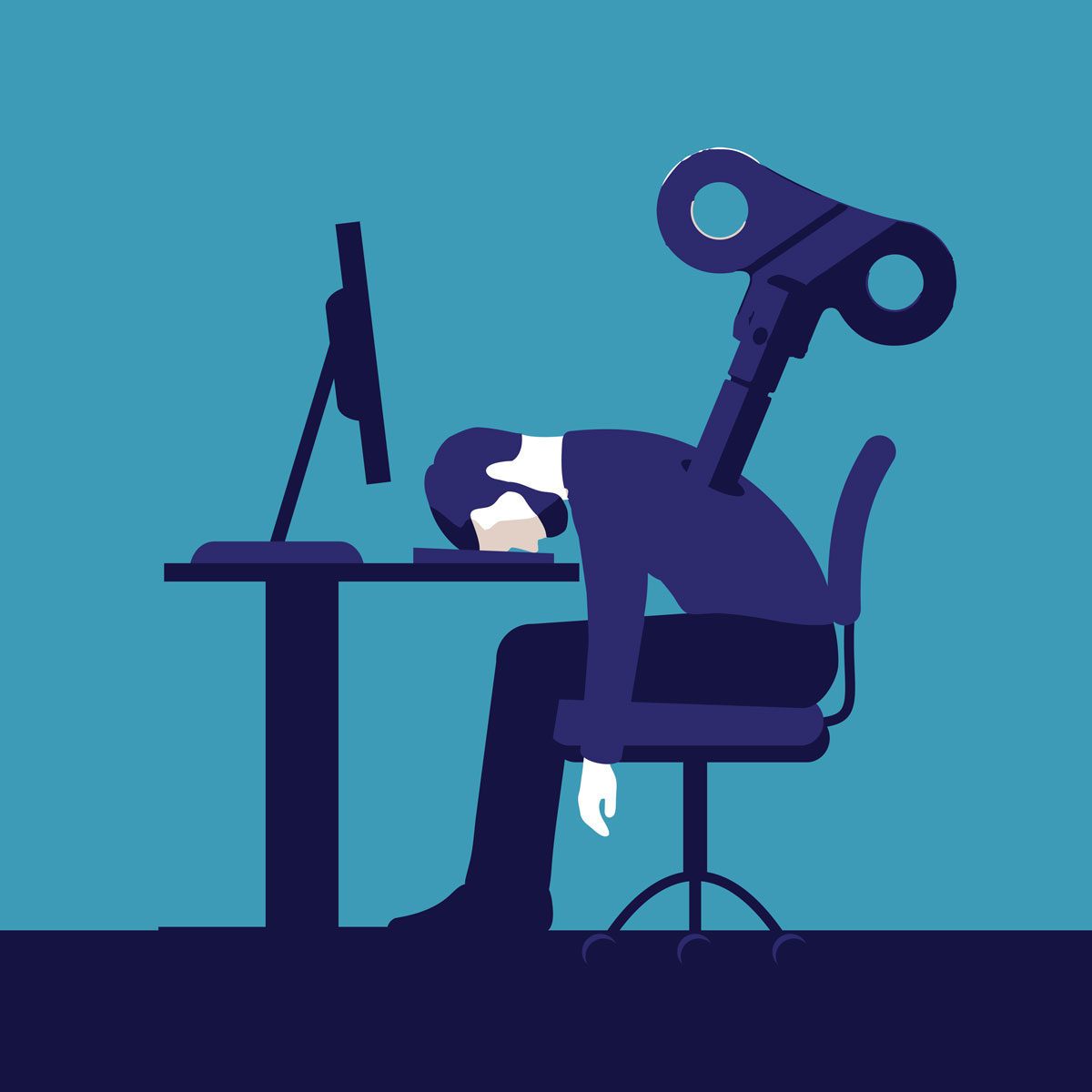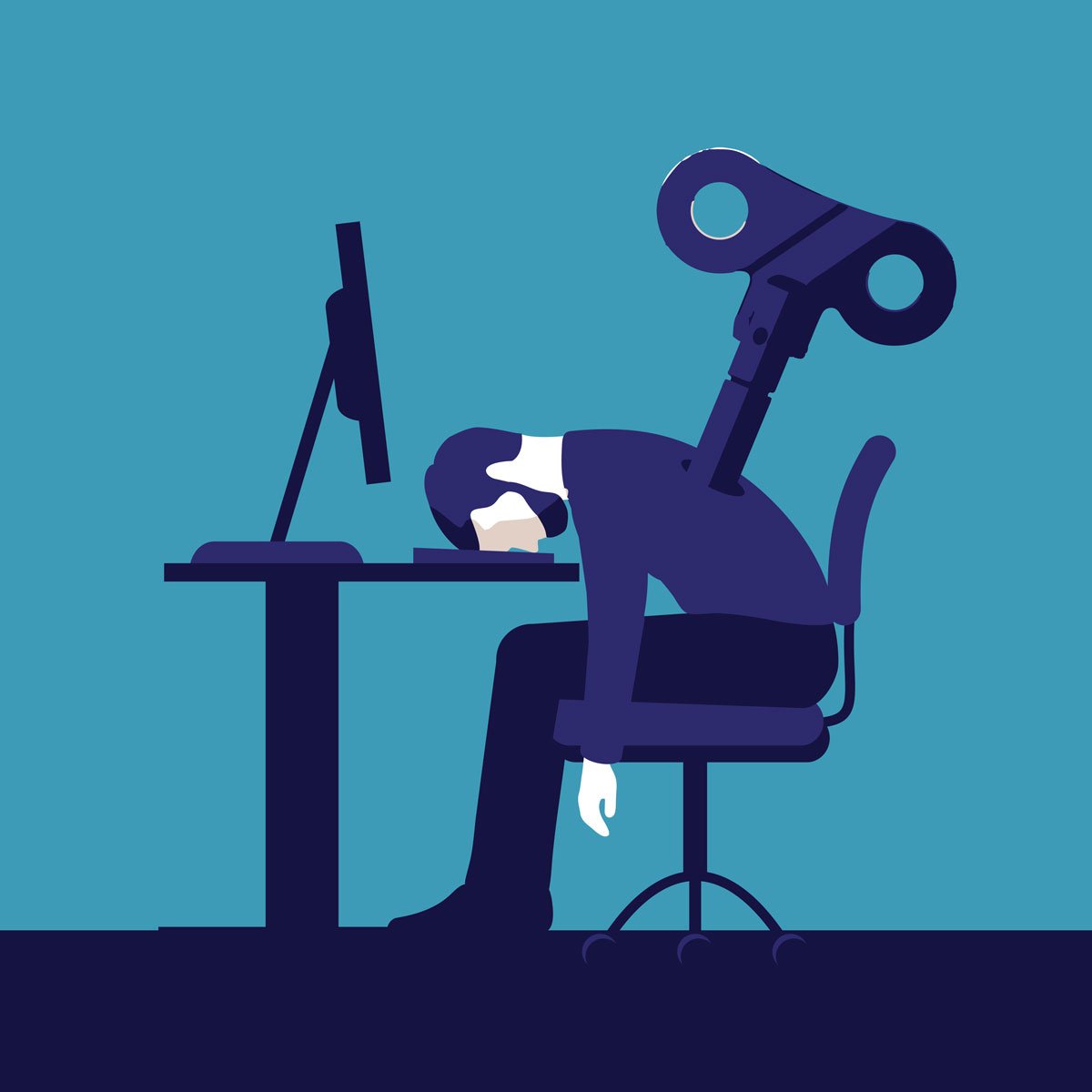A few weeks ago, I met up with an old friend from law school. It had been a couple of months since last we met, but the change in them was striking and somewhat frightening.
Dark circles around bloodshot eyes contrasted against drawn, ashen skin. Their now furrowed brow was topped by unwashed hair, while their clothes – usually pristine – were more worn in than the average working day creases. At a guess, they looked like they’d been slept in. It was a stark contrast to the image of a confident City lawyer usually portrayed. Instead, they looked like the weight of the world was on their shoulders.
Their team had been busy. Really busy. Demanding partners and clients had led to a succession of early starts and late nights, often bookending hours of frantic work. On the occasions they were able to leave the office at a reasonable hour, they found themselves lying awake late into the night, anxious about the following day’s work.
To say my friend was ‘stressed’ would be an understatement. As they vented, it was like watching a pressure cooker about to explode. Unfortunately, they are not alone in my peer group, or among the rest of the profession.
A recent study of 1,000 workers, conducted by insurance firm Protectivity, found lawyers to be the second most stressed professionals in the UK, with almost two-thirds of respondents reporting stress on a daily basis. The full report can be viewed at www.protectivity.com/stress-in-the-uk. In a separate study commissioned by Lexis Nexis, two-thirds of solicitors admitted feeling ‘highly stressed’ at work.
The latest resilience and wellbeing report from the Junior Lawyers Division (JLD) of the Law Society of England and Wales provides greater detail on the poor mental health of the profession. The annual survey shows over 93% of young lawyers are stressed at work, with almost one-quarter feeling ‘severe/extreme’ stress.
Around half of respondents said they had experienced mental ill health, a substantial increase on the 38% reported in 2018. Three in four reported disrupted sleep and just under 60% reported anxiety, fatigue, and depression. Alarmingly, more than 100 young lawyers admitted to having suicidal thoughts.
The key stress factors were found to include high workloads, client demands and expectations, lack of support, and ineffective management. Some 77% of respondents said their firm could do more to support stress at work, while 87% felt their firm could provide greater help, guidance, and support to improve mental health in the workplace.
But before any of our international readers assume this is just a UK problem, think again. In Australia, a 2015 PsychSafe study found that out of all professions, lawyers have the lowest psychological and psychosomatic health and wellbeing.
Meanwhile, a recent study by the Hazelden Betty Ford Foundation and the American Bar Association found that between 21 and 36% of attorneys are problem drinkers; 28% struggle with depression; 23% suffer from stress; and 19% are affected by anxiety. Moreover, studies by the Centers for Disease Control and Prevention found attorneys have one of the highest suicide rates among US professionals; the number of Big Law partners who have taken their own life grows each year.
The picture painted by these various studies is of a global profession struggling with the realities of modern legal practice. So what action can firms take to facilitate better wellbeing? Perhaps a starting point is for those at the top to listen to the rank and file – and their fellow partners – affected with mental health issues.
Respondents to the JLD survey called on firms to look at the root causes of mental ill health and stress by addressing workloads, how work is allocated, and ensuring sufficient qualified support staff are available to assist with the volume of work assigned.
‘[My] employer does not consider mental health as an issue worth considering,’ replied one junior lawyer. ‘[They are] doing nothing despite me being signed off due to stress at work. In fact they made me feel guilty for taking time off,’ offered another.
‘Reduce billable hours targets,’ was one respondent’s suggestion as ‘it’s impossible to hit 6-7 billable hours within a 7.5-hour contractual day.’ Another lawyer said firms should ‘not have arbitrary quotas for x amounts of sick days triggering disciplinary proceedings’.
Young solicitors also called on firm leaders to combat mental health stigma: ‘Mental health issues need to become less of a taboo and more people need to talk about their issues at all levels,’ was suggested, as was the need for law firm leaders to ‘demonstrate how to maintain good mental health e.g. by having hobbies and prioritising family life’.
Many legal businesses have woken up to mental health being a bottom line issue. Repeated sick leave and reduced performance levels caused by poor wellbeing can impact on more than the affected individual – the team, wider business, and clients are also impacted.
And if you want to retain your best and brightest – the future partners and firm leaders – then working them to breaking point is counterproductive, to say the least. High staff turnover and negative PR on legal gossip sites can definitely affect a firm’s brand – just look at US law firms in the City.
Associates debating a move to the London outpost of White Shoe firms can often be heard saying, ‘yeah, they pay great, but they’ll take their pound of flesh in return’. Whether or not this perception is correct, would you really want to work for an employer that only takes care of your bank balance to the detriment of your whole self?
But putting aside the business case for taking wellbeing and mental health seriously, there is also the moral obligation all firms owe their staff. Lawyers aren’t (yet) robots, they’re only human – treat them as such and you’ll get the best out of them.
Returning to my friend, they’re thinking long and hard about their future. I hope their firm does the same.
Taking positive action
Employee assistance schemes, helplines, online hubs, and access to free counselling.
Mental health champions and HR practitioners employed to promote wellbeing and reduce stigma around mental ill health.
Supportive, approachable partners who check in on staff working long hours, acknowledge existing problems, and manage workloads and client expectations.
Resilience and wellbeing training; mental health seminars.
Supportive workplace cultures, encouraging a good work-life balance, open door policies, and maximum and family friendly working hours policies.
Agile and flexible working patterns. Ability to take time off for stress or mental health reasons, or to work from home.
Access to mindfulness sessions, yoga, massage, talks on nutrition.
Regular staff surveys to measure morale and wellbeing.
Source: Resilience and wellbeing survey report 2019, Junior Lawyers Division
To view the full report, please click here.

